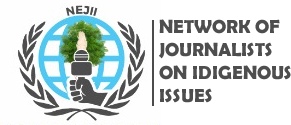The public hearing recently organised by the House of Representatives Committee on Area Councils and Ancillary Matters has revealed, more than anything else, the pathetic story of the indigenous people of the Federal Capital Territory (FCT). It is shameful, to put it mildly, that for almost 50 years since the acquisition of their land, the federal government has been unable to find an acceptable and enduring solution to the resettlement agitations and yearnings of the people. This much is clear by their expressed desire for an inclusive urban renewal and integration approach to resettlement, rather than the government’s relocation policy.
To be sure, there are bound to be challenges in the relocation policy, given that every piece of land ordinarily belongs to some people ancestrally, and allocating that land to people outside the area will likely evoke conflicts. And this is beside the fact that, no matter the compensation, the indigenous people have lost land, property and means of livelihood as a result of their displacement and relocation.
It is understandable, therefore, that the indigenes kicked against the long-standing relocation policy adopted by the Federal Capital Territory Administration (FCTA), saying that the policy is a breach of their fundamental human rights and the rule of law.
Speaking through their representatives during a public hearing organised by the House of Representatives Committee on Area Councils and Ancillary Matters, held in Abuja, they expressed belief that the urban renewal and integration approach fosters acceptance, comfort, and provides humane and equitable alternatives.
Under the Federal Capital Territory (FCT) Act of 1976, the vast lands originally belonging to indigenous peoples comprising nine tribes and 17 chiefdoms in the present-day FCT were ceded to the Federal Government of Nigeria to facilitate the relocation of the seat of power from Lagos, which had served as the country’s capital since 1914. It is delightful that a great city has emerged from the rustic communities across the expansive land in fulfilment of the noble vision of establishing a capital that befits the world’s most populous Black Country.
Notwithstanding, it remains unpleasant that more than three decades after Abuja officially became Nigeria’s capital city, the indigenous peoples whose lands were acquired, leading to their displacement and disruption of livelihoods as well as cultural heritage, are yet to be adequately accorded a sense of belonging as equal stakeholders despite their sacrifices and contributions to national development.
It is inconceivable that the spirit and letter of the FCT Act of 1976, which vested the Federal Capital Development Authority (FCDA) with the responsibilities of developing the new city, failed to consider the overriding interests of the indigenous people of Abuja in the scheme of things. It is apposite, therefore, to assert that the lingering plight of the indigenous communities and peoples, who have been forced into the outskirts of the cities on account of displacement from original settlements, is attributable to dereliction of duties by institutions and personnel vested with statutory state responsibilities rather than failure of the FCDA relocation policy.
The indigenous inhabitants who have suffered irretrievably in terms of loss of ancestral land and cultural heritage as a sacrifice for the befitting capital city that has become the pride of all Nigerians at home and in the Diaspora should not be abandoned to their fate. After all, they are victims of the circumstances Nigeria forced on them. Unfortunately, it appears they have been left to the frustration of engaging in ceaseless agitation over unfulfilled compensation and marginalisation from property ownership. To make matters worse, they are excluded from inclusive political participation and representation, which other communities and peoples across Nigeria have unfettered rights to exercise.
Notably, the United Nations Declaration on the Rights of Indigenous Peoples (UNDRIP), which was adopted by the UN General Assembly in 2007, clearly guarantees the fundamental rights of indigenous peoples to proclaim, protect and exercise control over their lands, territories, resources and heritage.
There is no doubt that the indigenous people across native communities displaced by the FCT have, over the years, suffered unmitigated disruption of livelihoods as well as detachment from the cultural and spiritual essence of their heritage. While no measure of recompense could adequately atone for the displacement of a people from their ancestral lands, successive administrations ought to have reined in the FCTA to ensure that the grievances of the affected indigenous communities and people are adequately addressed. It ought to be a matter of statutory duties for the relevant institutions and agencies to deliver prompt and seamless compensations and ensure that the feelings and emotions of citizens whose rights have been breached as a result of acquisition for national development as the case of Abuja indigenous people are sufficiently assuaged, rather than being subjected to double jeopardy of ceaseless agitations and needless frustrations.
It is, however, encouraging that the Speaker of the House of Representatives, Tajudeen Abbas, who spoke through a representative at the public hearing, acknowledged that the integration of FCT indigenes borders on the imperative of justice and equity. Therefore, the National Assembly should address the plight of the marginalised indigenous people of the FCT in the ongoing constitution review process. While the President Bola Tinubu administration should be commended for the appointment of a minister from the FCT for the first time in history, the broader issues relating to resettlement and homeland protection for Abuja indigenous people as well as their representations as a sub-national entity should also be accorded the desired attention; even if this requires the setting up of a special commission with the mandate of facilitating the development of the indigenous communities and emancipation of the marginalised people of the FCT.
Equally, the government should consider on its merit, requests for the creation of more local government areas as well as additional seats for equitable representation at the House of Representatives and the Senate. This could be a way of fostering integration of the indigenous people of FCT as equal and important stakeholders in the socio-economic and political affairs of the country.
Source: The Guardian


